Not everyone can handle a Doberman. If you're a first-time Doberman owner, you'll need to be aware of these 3 often overlooked warnings.
Do you have what it takes to own a Doberman?
To begin with, as an aspiring first-time Doberman owner, you're likely filled with excitement and anticipation for the arrival of your new furry friend.
Chiefly, Dobermans are known for their loyalty, intelligence, and imposing presence. However, before you bring home your new companion, there are a few overlooked warnings that you should be aware of.
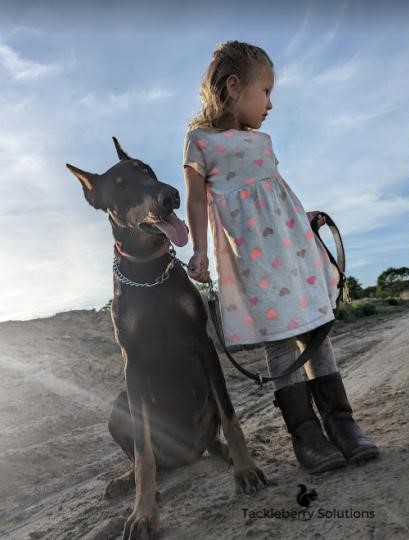
In short, Dobermans have their own unique personality, require structure, and are extraordinarily reflective:
- Never Overlook Personality
- Structure is Critical
- Mind Your Demeanor
In this blog post, we'll delve deeper into these three warnings to help you prepare for your new Doberman's arrival.
About The Author
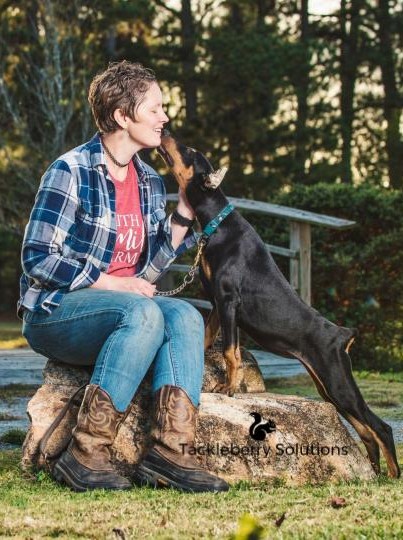
Hello, my name is Amy Arthur. I breed, train, and sell, purebred Doberman Pinscher puppies for service or protection work and as excellent quality family pets. Our dogs are personality tested and certified under Tackleberry Solutions and recommended for specific tasks depending upon their individual score results.
First-Time Doberman Owner: 3 Overlooked Warnings
Warning Number 1: Never Overlook a Doberman's Personality
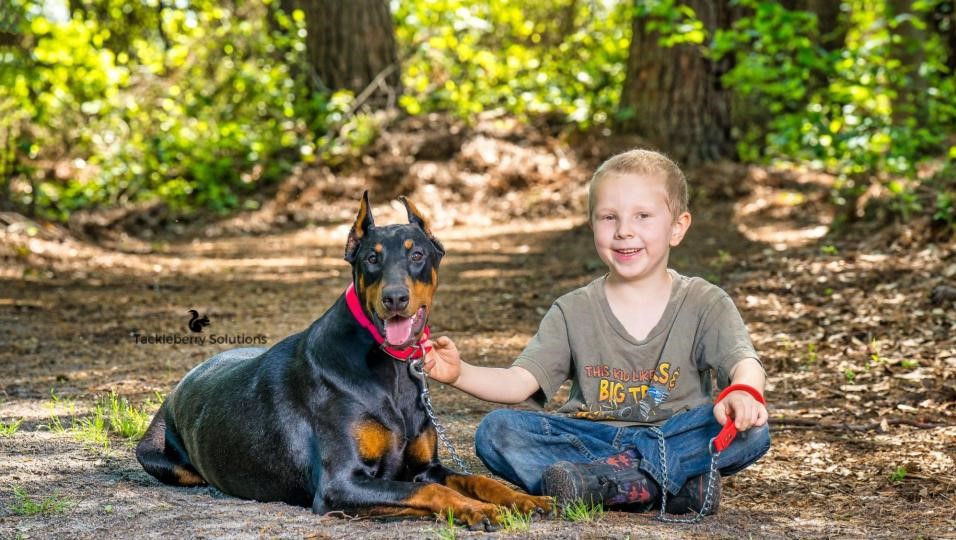
First, Dobermans are bred to be protective and loyal. However, just because they are a Doberman doesn't mean that they're cut out for what they're bred to do.
Accordingly, it's important to remember that each Doberman has their own unique personality that may not align with their breed's typical characteristics. (Clearly, this is why personality testing is so crucial.)
Side note: In conjunction, a Doberman's personality can be greatly impacted or altered based on any overwhelming, or negative experiences. Consequently, adopting rescues, discipline methods, and travel options should be considered carefully when planning for your furry friend's arrival.
An expert's opinion:
In describing the “ideal” Doberman temperament, our standard says the Doberman should be “energetic, watchful, determined, alert, fearless, loyal and obedient.”
Pat Murphy Cornelius // DPCA Author
Article Topic: First-Time Doberman Owner: 3 Overlooked Warnings
For example, some Dobermans may be more submissive and easily upset, while others could have a higher level of confidence.
Further reading: 5 Ways A Protection Dog Will Top A Guard Dog Every Time
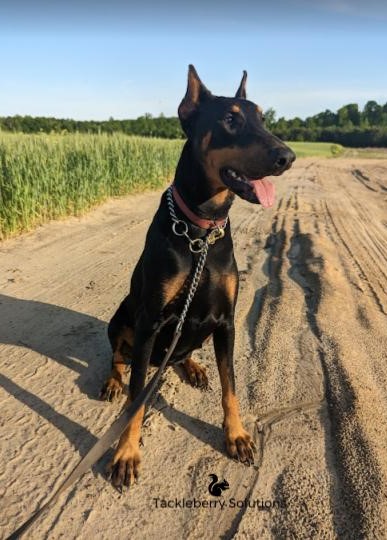
As a result, as a first-time Doberman owner, it's crucial to take the time to get to know them and their personality. Spend time with them, play with them, and observe their behavior. This will help you understand their needs and how best to care for them.
Additionally, submissive Dobermans can be sensitive and require a gentle approach to training. On the other hand, a more confident canine may need firmer correction.
Side note: Dobermans require trust. Whether or not they are friendly, they very rarely behave the same way for a stranger as they would family. Consequently, this is a crucial point to keep in mind during the bonding process with your Doberman.
To explain, just because they may act a bit timid upon their first arrival, doesn't mean that they're fearful. Only when they've formed that bond with you, can you fully get a clear picture of their true personality.
In either case, avoid using harsh punishment or yelling, as this can cause them to become fearful and less obedient. Instead, use positive reinforcement as much as possible.
Further Reading: How to Bond with Your Beloved Doberman Within the First 5 Min.
First-Time Doberman Owner
Warning Number 2: Dobermans Require Structure
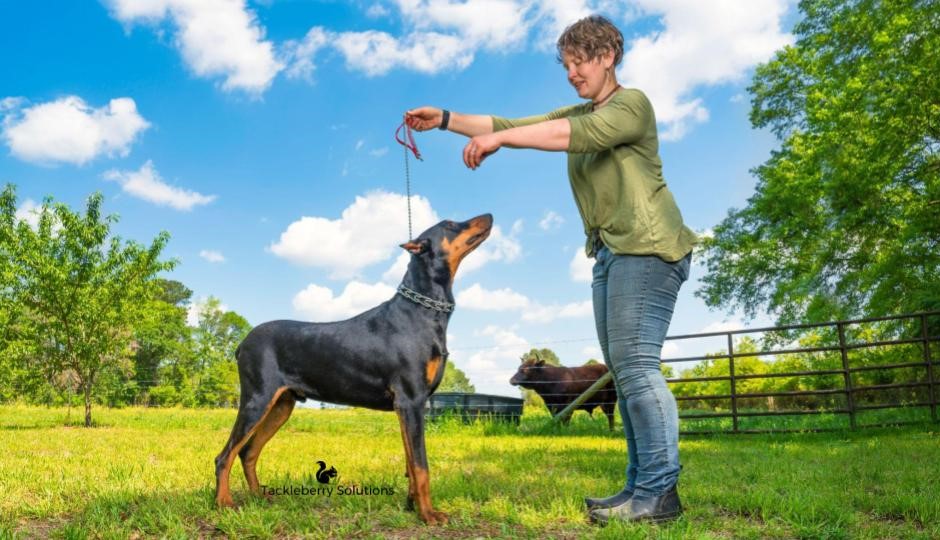
Above all, Dobermans are known to be highly intelligent, large breed dogs, and thrive best with an owner that sets clear rules for them to follow. Consequently, they require structure and routine in their daily lives, which helps them feel secure and reduces bad behavior.
As a first-time Doberman owner, before bringing your new friend home, make sure you have a plan in place for their daily routine. Namely, this includes feeding times, exercise, training sessions, and rest periods. Likewise, stick to a consistent schedule to help your Doberman feel comfortable and secure in their new environment.
Important note: Primarily, it's also important to establish yourself as the leader in your Doberman's life. Dobermans are pack animals and require a strong leader to follow. This means setting clear boundaries and rules for your Doberman to follow, and enforcing them consistently.
Further Reading: The Worst Alpha Dog Myth Debunked in 8 Minutes
A Tip From Personal Experience:
Dobermans have been known as "Velcro Dogs." Which means that they perform best when they have a close relationship with their handler.
As a result, when you form a tight bond with your canine, they'll likely expound on your training with a new level of obedience in a surprisingly intuitive manner based on your individual needs.
However, without that close bond, they will be less likely to listen to you at all. Keep in mind, that forming that bond is not difficult. All that is required is a basic understanding of Dobermans, dogs in general, and spending meaningful, positive time with them.
Amy Arthur
Warning Number 3: Dobermans Are Extraordinarily Reflective
Last, but not least, First-Time Doberman Owners should never forget this:
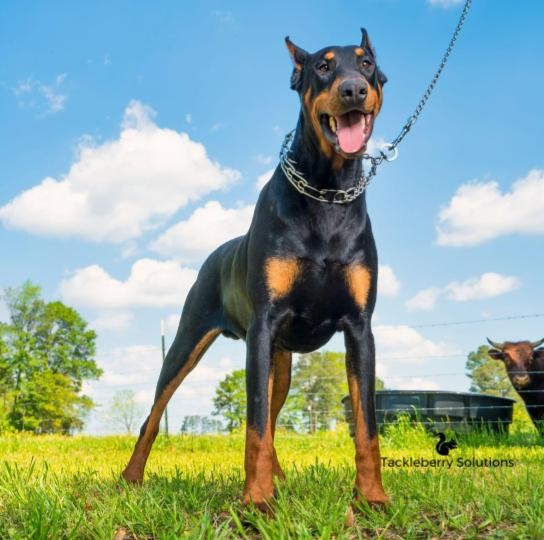
Primarily, Dobermans are highly reflective dogs. As a result, they can pick up on and express their owner's emotions very quickly. Consequently, if you're nervous or anxious towards your Doberman, they will know and likely become anxious or over-reactive.
On the other hand, if you're confident in your dog and calm, your Doberman is more likely to be obedient and perform better.
Important: To put it simply, if you expect your Doberman to be difficult to manage, then it will be. Conversely, if you have confidence and pride in your canine, then they'll better be able to reach their full potential.
Remember, what you put into your Doberman is very likely what you'll get back. If you approach them with love, confidence, patience, and consistency, you'll likely have a loyal and obedient companion for life.
Further Reading: Why PD Dobermans Perform Best In Pairs
Continued Quote From an Expert:
To a Doberman, companionship with his person is the essence of his life. And also the essence of Doberman temperament, for Dobermans were intentionally designed to be companion and protector.
Pat Murphy Cornelius // DPCA Author
Key Take-Aways for a First-Time Doberman Owner
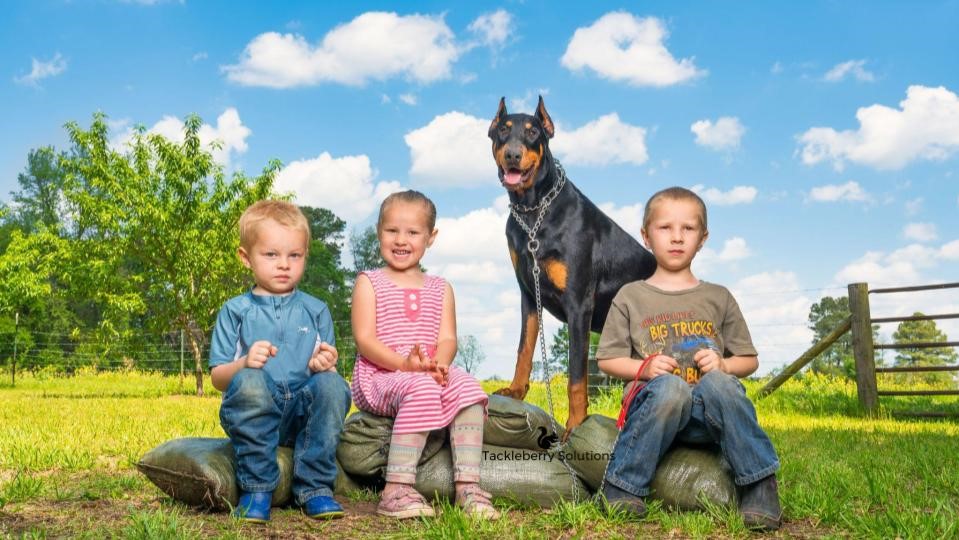
Ultimately, bringing home a Doberman can be an exciting and rewarding experience. However, it's important to remember that Dobermans have their own unique personality, require structure, and are extraordinarily reflective.
In essence, take the time to get to know your new companion, establish clear rules and boundaries, and approach them with a positive and confident attitude. By doing so, you'll be setting yourself and your Doberman up for a happy and fulfilling life together.
In contrast, if you find yourself nervous, intimidated or uncertain about your Doberman, they'll know it and respond accordingly.
Further Reading: How to find the best Doberman Pinschers in America
Financing Available

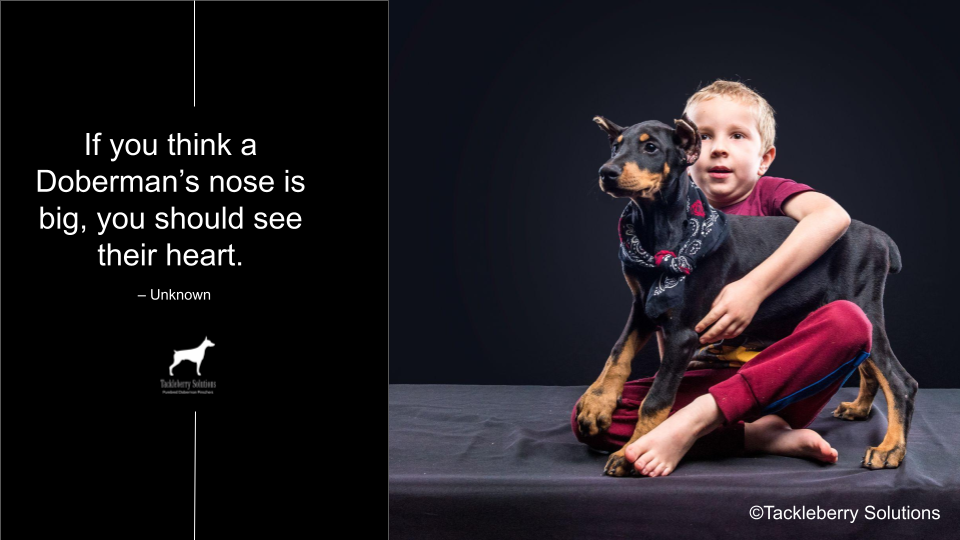

Hello! I just had a quick question because I’m thinking of getting a protection dog eventually. So, I was wondering, if my dog bit someone protecting me then would it still be in trouble? I’m asking this because I know that if a dog bites unless it’s for a medical reason, then they’re usually put down. Thanks!
Good question. First, let me establish that this is a questions better answered by a lawyer. I am not a lawyer, and will only be sharing my opinion. Not something that should be taken for legal or medical advice. However, I have written an article on this very subject of which you might find of interest: Are Protection Dogs a Liability?
In short, there is risk involved with everything you do. While it certainly is heartbreaking to lose a furry friend if they were to bite something, such an act is far less detrimental if you had to brandish a weapon or use lethal force in order to defend yourself. One can be construed as a crime a lot easier than another. One is also easier to defend against than another. Although it is important to ensure that your canine is within your control. One that has not been trained properly or has a faulty personality, is going to be more of a liability than one that is the reverse.